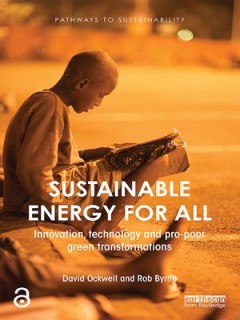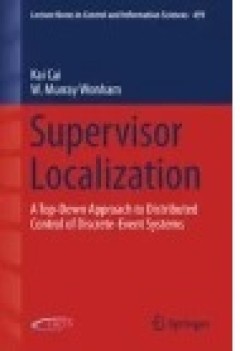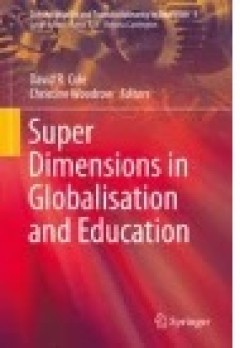Filter by

Real-Time Monitoring of Cancer Cell Metabolism for Drug Testing
Hamed Alborzinia uses the biosensor chip to monitor the metabolic and morphological changes in cancer cell lines in real time, particularly: (i) real-time measurements of basic cancer cell metabolism of different cancer cell lines; (ii) a detailed timeline of the metabolic response to cisplatin treatment and clear detection of the time span between start of cisplatin treatment and onset of cell…
- Edition
- -
- ISBN/ISSN
- 978-3-658-10161-9
- Collation
- -
- Series Title
- -
- Call Number
- 615

Tourism and Travel during the Cold War : Negotiating Tourist Experiences acro…
The Iron Curtain was not an impenetrable divide, and contacts between East and West took place regularly and on various levels throughout the Cold War. This book explores how the European tourist industry transcended the ideological fault lines and the communist states attracted an ever-increasing number of Western tourists. Based on extensive original research, it examines the ramifications of…
- Edition
- -
- ISBN/ISSN
- 9780429577116
- Collation
- -
- Series Title
- -
- Call Number
- 650

Sustainable Energy for All Innovation, technology and pro-poor green transfor…
Despite decades of effort and billions of dollars spent, two thirds of people in sub-Saharan Africa still lack access to electricity, a vital pre-cursor to economic development and poverty reduction. Ambitious international policy commitments seek to address this, but scholarship has failed to keep pace with policy ambitions, lacking both the empirical basis and the theoretical perspective to i…
- Edition
- -
- ISBN/ISSN
- -
- Collation
- -
- Series Title
- -
- Call Number
- 650

Supply Chain Configuration
This book discusses the models and tools available for solving configuration problems, emphasizes the value of model integration to obtain comprehensive and robust configuration decisions, proposes solutions for supply chain configuration in the presence of stochastic and dynamic factors, and illustrates application of the techniques discussed in applied studies. It is divided into four parts, …
- Edition
- -
- ISBN/ISSN
- 978-1-4939-3557-4
- Collation
- XXIII, 297
- Series Title
- -
- Call Number
- -

Supervisor Localization
The basic localization theory is first presented in the Ramadge–Wonham language-based supervisory control framework, then demonstrated with distributed control examples of multi-robot formations, manufacturing systems, and distributed algorithms. An architectural approach is adopted to apply localization to large-scale DES; this yields a heterarchical localization procedure, which is also dem…
- Edition
- -
- ISBN/ISSN
- 978-3-319-20496-3
- Collation
- XV, 199
- Series Title
- Lecture Notes in Control and Information Sciences
- Call Number
- -

Superradiance
Superradiance is a radiation enhancement process that involves dissipative systems. With a 60 year-old history, superradiance has played a prominent role in optics, quantum mechanics and especially in relativity and astrophysics. In Einstein's General Relativity, black-hole superradiance is permitted by dissipation at the event horizon, which allows energy extraction from the vacuum, even at th…
- Edition
- -
- ISBN/ISSN
- 978-3-319-19000-6
- Collation
- XIII, 237
- Series Title
- Lecture Notes in Physics
- Call Number
- -

Superconductivity
This book presents the basics and applications of superconducting magnets. It explains the phenomenon of superconductivity, theories of superconductivity, type II superconductors and high-temperature cuprate superconductors. The main focus of the book is on the application to superconducting magnets to accelerators and fusion reactors and other applications of superconducting magnets. The therm…
- Edition
- -
- ISBN/ISSN
- -
- Collation
- XXII, 414
- Series Title
- Springer Series in Materials Science
- Call Number
- -

Supercomputing for Molecular Dynamics Simulations
This work presents modern implementations of relevant molecular dynamics algorithms using ls1 mardyn, a simulation program for engineering applications. The text focuses strictly on HPC-related aspects, covering implementation on HPC architectures, taking Intel Xeon and Intel Xeon Phi clusters as representatives of current platforms. The work describes distributed and shared-memory parallelizat…
- Edition
- -
- ISBN/ISSN
- 978-3-319-17148-7
- Collation
- X, 76
- Series Title
- SpringerBriefs in Computer Science
- Call Number
- -

Sustainable Development Goal 3 : Health and Well-being of Ageing in Hong Kong
Sustainable Development Goals (SDGs) aim to develop a better and sustainable future for the world and the goals are part of an action plan to address poverty, hunger, health, gender equity and various pressing world issues. One of these goals looks at health and wellness. Ageing populations have become a crucial issue worldwide and this short monograph explores ageing and how the consequences o…
- Edition
- -
- ISBN/ISSN
- 9781000544282,
- Collation
- -
- Series Title
- -
- Call Number
- 650

Super Dimensions in Globalisation and Education
This volume is the first major production of the globalisation research strand of the Centre for Educational Research at Western Sydney University. This book makes a significant contribution to the theory of and research in globalisation and education, and tackles the topics of superdiversity and supercomplexity. The book’s thesis is that the effects of globalisation on education can only be …
- Edition
- -
- ISBN/ISSN
- 978-981-10-0312-7
- Collation
- XIV, 256
- Series Title
- Cultural Studies and Transdisciplinarity in Education
- Call Number
- -
 Computer Science, Information & General Works
Computer Science, Information & General Works  Philosophy & Psychology
Philosophy & Psychology  Religion
Religion  Social Sciences
Social Sciences  Language
Language  Pure Science
Pure Science  Applied Sciences
Applied Sciences  Art & Recreation
Art & Recreation  Literature
Literature  History & Geography
History & Geography